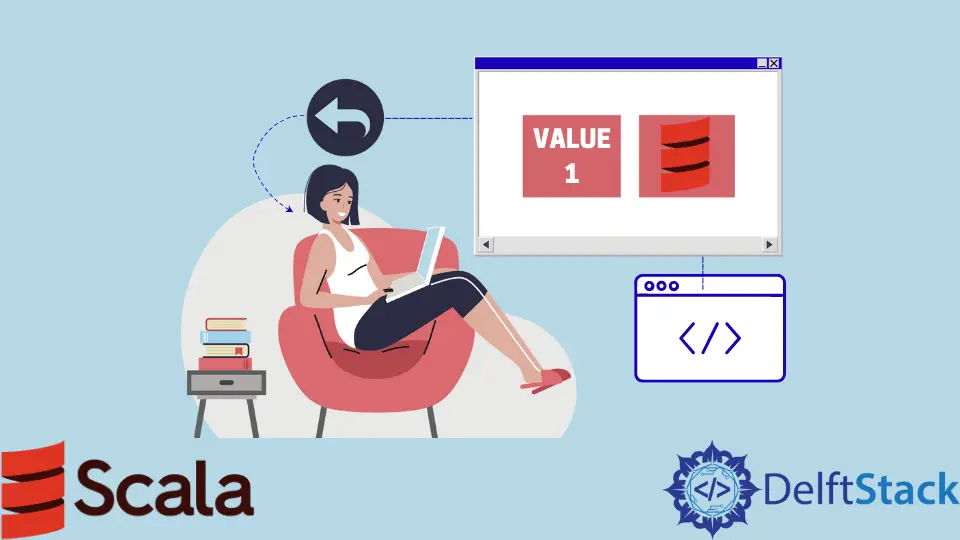How to Return a Value in Scala

Returning a value from a function is a fundamental aspect of programming, and Scala provides various ways to achieve this. Whether you’re a beginner or an experienced developer, understanding how to return values effectively can enhance your coding skills and improve your application’s performance.
In this article, we’ll explore the different methods available for returning values in Scala, complete with examples and detailed explanations. By the end, you’ll have a solid grasp of how to return values in Scala and when to use each method. Let’s dive in!
Understanding Function Returns in Scala
In Scala, functions can return values using several mechanisms. The most common method is through the use of the return keyword, but there are also other ways to return values implicitly. Scala is a statically typed language, which means that the return type of a function must be declared, either explicitly or inferred by the compiler. This flexibility allows for concise and expressive code.
Using the Return Keyword
The return keyword is the most straightforward way to return a value from a function in Scala. When you use return, the function exits immediately, and the specified value is returned to the caller. Here’s a simple example to illustrate this:
def add(a: Int, b: Int): Int = {
return a + b
}
val result = add(5, 10)
Output:
15
In this example, the add function takes two integer parameters, a and b, and returns their sum. The use of the return keyword makes it clear that the function is designed to return a value. However, it’s worth noting that using return is not always necessary in Scala, as the last evaluated expression in a function is returned by default.
Implicit Returns in Scala
Scala allows for implicit returns, which means that the last expression evaluated in a function is automatically returned without needing the return keyword. This makes your code cleaner and more idiomatic. Here’s how you can implement this:
def multiply(a: Int, b: Int): Int = {
a * b
}
val result = multiply(4, 5)
Output:
20
In this case, the multiply function returns the product of a and b without explicitly using the return keyword. This style is preferred in Scala as it enhances readability and maintains the functional programming paradigm. Scala’s design encourages you to think in terms of expressions rather than statements, which is reflected in this approach to returning values.
Returning Multiple Values Using Tuples
Sometimes, you may want to return more than one value from a function. Scala makes this easy by allowing you to return multiple values in a tuple. A tuple is a data structure that can hold a fixed number of elements of different types. Here’s an example:
def calculateDimensions(length: Int, width: Int): (Int, Int) = {
(length, width)
}
val (l, w) = calculateDimensions(10, 5)
Output:
10
5
In this example, the calculateDimensions function returns a tuple containing the length and width. When calling the function, we can unpack the tuple into individual variables l and w. This method is particularly useful when you need to return related data points from a function, making it easier to manage multiple return values without creating a separate class or structure.
Using Option for Safe Returns
In Scala, it’s common to deal with situations where a function might not return a value. To handle such cases safely, Scala provides the Option type. This type can either be Some(value) if a value is present or None if there isn’t. Here’s how you can use Option to return values safely:
def findElement(arr: Array[Int], target: Int): Option[Int] = {
arr.find(_ == target)
}
val result = findElement(Array(1, 2, 3, 4, 5), 3)
Output:
Some(3)
In this example, the findElement function searches for a target value in an array. If the value is found, it returns Some(value); otherwise, it returns None. This approach helps to avoid null pointer exceptions and makes your code more robust. You can easily check if a value is present using pattern matching or methods like getOrElse, enhancing the safety of your Scala applications.
Conclusion
Understanding how to return values in Scala is crucial for writing efficient and effective code. Whether you choose to use the return keyword, rely on implicit returns, return multiple values with tuples, or leverage the Option type for safe returns, each method has its place in Scala programming. By mastering these techniques, you can improve your coding practices and create more robust applications. Now that you have the knowledge, it’s time to put it into practice!
FAQ
-
What is the purpose of the return keyword in Scala?
The return keyword is used to explicitly return a value from a function, though it’s often unnecessary due to Scala’s implicit return feature. -
How can I return multiple values from a function in Scala?
You can return multiple values by using a tuple, which allows you to group related values together. -
What is the Option type in Scala?
The Option type is a container that can hold either a value (Some) or no value (None), providing a safe way to handle potential absence of values. -
Should I always use the return keyword in my Scala functions?
No, it’s generally better to avoid using the return keyword unless necessary, as Scala allows the last evaluated expression to be returned implicitly.